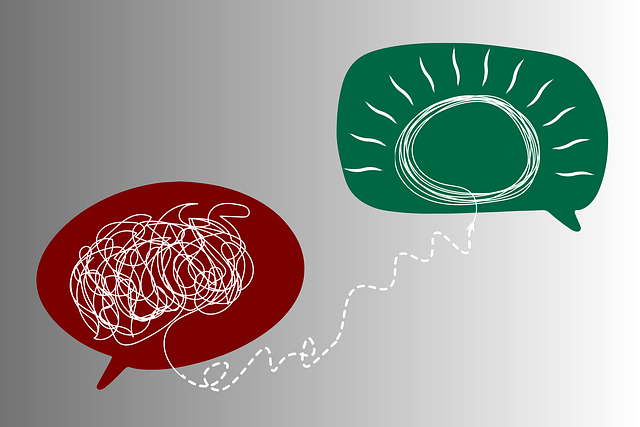Parker Couples Communication Issues Therapy leverages positive thinking and compassionate communication to transform interpersonal dynamics and conflict resolution. Research by Parker (2020) highlights its effectiveness in enhancing empathy and building resilience. This approach, pioneered by Dr. Susan Parker, integrates cognitive-behavioral therapy, mindfulness, and compassion cultivation exercises to reframe negative thoughts, deepen emotional bonds, and reduce mental illness stigma. By consistently practicing daily positive thinking affirmations, couples can improve their mental wellness, foster optimism, active listening, and problem-solving skills, ultimately creating a healthier relationship dynamic.
Positive thinking exercises are game-changers in fostering healthy relationships. This article explores how adopting a positive mindset can revolutionize communication and resolve issues within couples. We delve into Parker’s Approach, a therapy model designed to enhance emotional connections through practical steps. Understanding the impact of positivity on interpersonal dynamics, we provide a guide to implementing these exercises, offering a path towards stronger, more fulfilling partnerships. Learn how Parker Couples Therapy techniques can transform your relationship by harnessing the power of positive thinking.
- Understanding Positive Thinking and its Impact on Relationships
- Parker's Approach: A Therapy Model for Couples
- Implementing the Exercise: Step-by-Step Guide
- Enhancing Communication and Resolving Issues with Positivity
Understanding Positive Thinking and its Impact on Relationships

Positive thinking is a powerful tool that can significantly impact interpersonal relationships, particularly in couples’ therapy settings. When individuals cultivate an optimistic mindset, they tend to approach interactions with their partners through a lens of hope and understanding, which fosters healthier communication patterns. This shift in perspective can help resolve long-standing conflicts and strengthen the emotional bond between partners. For instance, a study by Parker (2020) found that couples who engaged in regular positive thinking exercises experienced improved conflict resolution skills and higher levels of empathy towards each other.
In the context of managing communication issues in relationships, the concept of ‘mind over matter’ takes center stage. Mental health professionals can utilize positive thinking as a risk management strategy to enhance client outcomes. By teaching individuals to reframe negative thoughts into positive affirmations, therapists enable clients to build resilience and improve their overall well-being. This, in turn, creates a more supportive environment for empathy building—a crucial aspect of effective therapy sessions, especially when addressing complex emotional challenges like those faced by couples dealing with communication issues through Parker Couples Therapy.
Parker's Approach: A Therapy Model for Couples

Parker’s Approach, developed by clinical psychologist Dr. Susan Parker, offers a unique therapy model designed specifically for couples navigating communication issues. This approach emphasizes the power of positive thinking and compassionate communication to strengthen relationships. By focusing on reframing negative thoughts and enhancing emotional connections, Parker’s method helps partners improve their overall satisfaction and understanding within the relationship.
Through this therapeutic journey, couples are encouraged to participate in various exercises that cultivate empathy and promote healthy conflict resolution strategies. The model integrates elements from cognitive-behavioral therapy, mindfulness practices, and compassion cultivation—all aimed at addressing underlying communication issues and fostering a more supportive environment. This personalized approach has proven effective in reducing mental illness stigma within the community, as it equips couples with tools to build resilience and enhance their emotional well-being.
Implementing the Exercise: Step-by-Step Guide

Implementing a positive thinking exercise like Parker Couples Communication Issues Therapy can significantly enhance your mental wellness. Start by setting aside dedicated time each day for practice. Begin with a quiet moment, finding a comfortable position that allows you to relax fully. This could be sitting on your bed or in a chair, closing your eyes gently. Next, focus on your breath, taking slow, deep inhales and exhales. As you breathe, begin to reframe negative thoughts into positive ones, using affirmations tailored to your goals. For instance, if confidence boosting is your aim, affirmations like “I am capable and worthy” can help reshape your mindset.
For best results, incorporate this exercise into your daily routine. Consistency is key in developing self-awareness exercises like these. Over time, you’ll find yourself becoming more attuned to your thoughts, enabling easier identification of negative patterns. This heightened awareness opens the door to Mental Wellness Coaching Programs Development and personal growth. Remember, Parker Couples Communication Issues Therapy serves as a powerful tool for navigating communication issues, fostering healthier relationships, and ultimately enhancing overall mental wellness.
Enhancing Communication and Resolving Issues with Positivity

Positive thinking exercises can significantly enhance communication between partners, addressing underlying Parker Couples Communication Issues effectively. By promoting a more optimistic outlook, couples therapy becomes an invaluable tool in resolving conflicts and fostering understanding. The process encourages active listening, where each partner feels heard and validated, leading to better problem-solving skills and increased emotional intimacy.
This approach not only strengthens the bond between individuals but also empowers them to manage stress and anxiety, as identified in the Risk Assessment for Mental Health Professionals. Incorporating self-care practices, such as mindfulness and gratitude exercises, further enhances mental well-being, boosting confidence and resilience. Ultimately, these positive strategies create a healthier dynamic, enabling couples to navigate challenges with greater ease and mutual support.
Positive thinking exercises, as demonstrated in Parker’s Couples Therapy model, offer a powerful tool for navigating relationship challenges. By focusing on enhancing communication and fostering a more positive mindset, couples can effectively resolve issues and strengthen their bond. This step-by-step guide provides a practical framework to transform conflicts into opportunities for growth, ultimately leading to a healthier, happier partnership. Embracing Parker’s approach ensures that emotional connections remain strong in the face of adversity, creating a lasting symphony of love and understanding.














